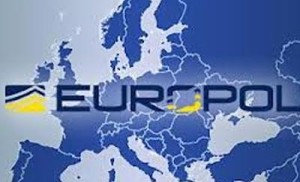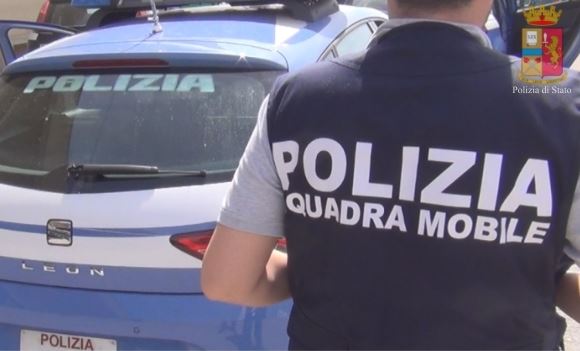
 Europe is facing its most serious terrorist threat for over 10 years. The attacks on Charlie Hebdo in January 2015 marked a shift towards a broader strategy of Jihadist terrorism, and the so-called IS in particular, to intimidate Western countries with successive terror attacks across Europe. The potential increase of returnees from conflict zones requires vigilance from all involved actors. The launch of the ECTC in January 2016 was the EU’s answer to this new threat. Its establishment, including the Internet Referral Unit (IRU) as a new capability to tackle unprecedented levels of online terrorism propaganda, was a major milestone for the EU security architecture. For the first time in the EU there was consensus, in the counter terrorism policy context, that a cornerstone for cooperation at EU level was needed to support national counter terrorism efforts. Information sharing on counter terrorism, across European countries as well as through and with Europol, had reached an all-time high by the end of 2016. For instance, Europol held more than 10 times as much information on ‘person entities’ in its database, compared with January 2015 when the attack on Charlie Hebdo took place. The function of the ECTC as a hub to exchange information, conduct analysis and coordinate operational support is being exploited by EU Member States and relevant third parties, indicating a significant increase in trust and awareness across national counter terrorism authorities concerning Europol’s support services. Europol supported 127 counter terrorism operations in 2016, including most recently the attack in Berlin. This is an almost 50 percent increase compared to 2015 with 86 investigations. Following the November 2015 attacks, Europol’s most extensive involvement has been through Task Force Fraternité, where high-value information has been shared with and through Europol (e.g. new targets, associates, phone data). The total amount of information available on the case at Europol level is: 19 TB of overall information, 2500 SIENA message exchanges, 1247 leads from the Terrorist Finance Tracking Programme (TFTP), 2274 other financial messaging leads, and 60 Passenger Name Record (PNR) requests. A total of 80 operational analysis reports and intelligence packages have been delivered (not counting cross-match reports), as well as 32 social media report packages. This has generated new leads for investigation, and following national law enforcement measures, the identification of new targets. At the same time the ECTC was involved in the guest officers’ project in Greece and Italy to provide secondary security checks at external EU borders, and also supported the EU Internet Forum under the lead of the European Commission which has led to commitment from online service providers to reduce terrorism propaganda online. ECTC was additionally involved in various initiatives to enhance cooperation especially in the Western Balkans and Middle East and North African regions. Europol Director Rob Wainwright said: ”The opening of Europol’s ECTC was a major milestone in the fight against terrorism. After one year, we can see that the services of the ECTC are being used by the EU Member States and we recognise a marked increase in information sharing. Nevertheless the attacks in the last few months have shown that information sharing and cooperation needs to increase even more. Together with its partners, Europol is already taking measures to enhance operational cooperation and also the prevention of radicalisation.” Commissioner for Migration, Home Affairs and Citizenship Dimitris Avramopoulos said: “The launch of the European Counter Terrorism Centre one year ago has been a shift in gears in the EU’s political and operational cooperation in fighting terrorism. I am pleased that there is more trust, more exchange and more collaboration between Member States. The European Counter Terrorism Centre has shown its added value in concretely supporting our Member States that suffered terrorist attacks this past year. It will continue being the epicentre of our counter-terrorism cooperation in Europe. This is why we will strengthen its capacities even more and equally count on Member States to cooperate with the Centre.” Commissioner for Security Union Julian King said: “One year on Europol’s ECTC has made a real difference to cooperation on counter-terrorism across Europe, helping and supporting front line efforts by national law enforcement. There’s still more to do, including improving information sharing, getting the best from existing databases and plugging gaps. This will be a top counter-terrorism priority for 2017.”
Europe is facing its most serious terrorist threat for over 10 years. The attacks on Charlie Hebdo in January 2015 marked a shift towards a broader strategy of Jihadist terrorism, and the so-called IS in particular, to intimidate Western countries with successive terror attacks across Europe. The potential increase of returnees from conflict zones requires vigilance from all involved actors. The launch of the ECTC in January 2016 was the EU’s answer to this new threat. Its establishment, including the Internet Referral Unit (IRU) as a new capability to tackle unprecedented levels of online terrorism propaganda, was a major milestone for the EU security architecture. For the first time in the EU there was consensus, in the counter terrorism policy context, that a cornerstone for cooperation at EU level was needed to support national counter terrorism efforts. Information sharing on counter terrorism, across European countries as well as through and with Europol, had reached an all-time high by the end of 2016. For instance, Europol held more than 10 times as much information on ‘person entities’ in its database, compared with January 2015 when the attack on Charlie Hebdo took place. The function of the ECTC as a hub to exchange information, conduct analysis and coordinate operational support is being exploited by EU Member States and relevant third parties, indicating a significant increase in trust and awareness across national counter terrorism authorities concerning Europol’s support services. Europol supported 127 counter terrorism operations in 2016, including most recently the attack in Berlin. This is an almost 50 percent increase compared to 2015 with 86 investigations. Following the November 2015 attacks, Europol’s most extensive involvement has been through Task Force Fraternité, where high-value information has been shared with and through Europol (e.g. new targets, associates, phone data). The total amount of information available on the case at Europol level is: 19 TB of overall information, 2500 SIENA message exchanges, 1247 leads from the Terrorist Finance Tracking Programme (TFTP), 2274 other financial messaging leads, and 60 Passenger Name Record (PNR) requests. A total of 80 operational analysis reports and intelligence packages have been delivered (not counting cross-match reports), as well as 32 social media report packages. This has generated new leads for investigation, and following national law enforcement measures, the identification of new targets. At the same time the ECTC was involved in the guest officers’ project in Greece and Italy to provide secondary security checks at external EU borders, and also supported the EU Internet Forum under the lead of the European Commission which has led to commitment from online service providers to reduce terrorism propaganda online. ECTC was additionally involved in various initiatives to enhance cooperation especially in the Western Balkans and Middle East and North African regions. Europol Director Rob Wainwright said: ”The opening of Europol’s ECTC was a major milestone in the fight against terrorism. After one year, we can see that the services of the ECTC are being used by the EU Member States and we recognise a marked increase in information sharing. Nevertheless the attacks in the last few months have shown that information sharing and cooperation needs to increase even more. Together with its partners, Europol is already taking measures to enhance operational cooperation and also the prevention of radicalisation.” Commissioner for Migration, Home Affairs and Citizenship Dimitris Avramopoulos said: “The launch of the European Counter Terrorism Centre one year ago has been a shift in gears in the EU’s political and operational cooperation in fighting terrorism. I am pleased that there is more trust, more exchange and more collaboration between Member States. The European Counter Terrorism Centre has shown its added value in concretely supporting our Member States that suffered terrorist attacks this past year. It will continue being the epicentre of our counter-terrorism cooperation in Europe. This is why we will strengthen its capacities even more and equally count on Member States to cooperate with the Centre.” Commissioner for Security Union Julian King said: “One year on Europol’s ECTC has made a real difference to cooperation on counter-terrorism across Europe, helping and supporting front line efforts by national law enforcement. There’s still more to do, including improving information sharing, getting the best from existing databases and plugging gaps. This will be a top counter-terrorism priority for 2017.”






